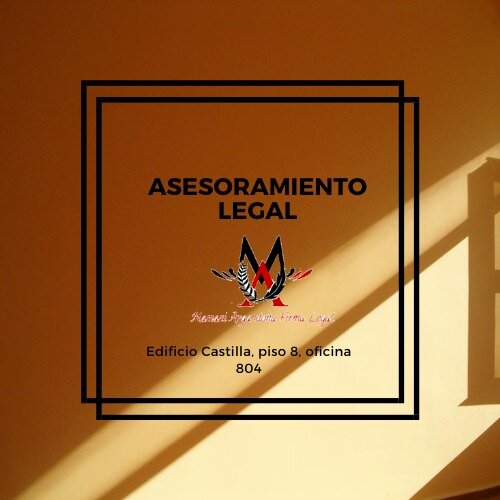Best Funds & Asset Management Lawyers in Bolivia
Share your needs with us, get contacted by law firms.
Free. Takes 2 min.
Or refine your search by selecting a city:
List of the best lawyers in Bolivia
About Funds & Asset Management Law in Bolivia
Funds and asset management in Bolivia refers to the legal and regulatory environment governing the management, investment, and administration of financial assets, such as mutual funds, investment funds, pension funds, and other collective investment vehicles. The primary objective of Bolivian regulations is to protect investors, ensure transparency, and foster the healthy development of capital markets. These regulations set standards for investment fund formation, operation, disclosure, reporting, and oversight, as well as the duties and responsibilities of asset managers and trustees. The Bolivian government, through its financial supervisory agencies, closely monitors compliance and imposes sanctions for irregularities to maintain market integrity and public trust.
Why You May Need a Lawyer
Legal advice in funds and asset management is essential due to the highly regulated nature of the industry and the complexity of investment structures. Common situations where you may need a lawyer include:
- Setting up an investment fund or asset management company
- Understanding regulatory compliance and licensing requirements
- Drafting and reviewing contracts for fund management or advisory services
- Ensuring that marketing materials and business practices comply with Bolivian law
- Resolving disputes between investors, managers, or other stakeholders
- Handling investigations or enforcement actions by financial authorities
- Conducting due diligence for mergers, acquisitions, or fund restructuring
- Interpreting tax obligations related to managed assets or funds
- Protecting your interests if you are an investor in a fund or asset management product
A lawyer with expertise in Bolivian funds and asset management law can help you navigate complex regulations, avoid costly mistakes, and safeguard your investment interests.
Local Laws Overview
The Bolivian legal framework for funds and asset management is mainly outlined in the “Ley del Mercado de Valores” (Securities Market Law), its complementary regulations, and norms issued by the Autoridad de Supervisión del Sistema Financiero (ASFI), Bolivia’s financial supervisory authority. Key aspects of Bolivian law include:
- Licensing: Only authorized entities may manage or create collective investment or mutual funds. Registration with the ASFI is mandatory.
- Fund Structuring: Detailed requirements apply for the formation, operation, and governance of funds, including documentation, risk management policies, and reporting obligations.
- Disclosure: Asset managers must provide current and accurate disclosures to potential and current investors, ensuring transparency around fund performance, risks, and fees.
- Custody: Funds must utilize qualified custodians, usually regulated financial institutions, to safeguard client assets and limit risks of misappropriation.
- Supervision: Regular oversight is conducted by ASFI through audits and reporting, and asset managers are subject to ongoing compliance requirements.
- Investor Protection: Mechanisms are established to safeguard investor interests, provide avenues for complaints, and ensure proper management of conflicts of interest.
- Sanctions: Violations of laws or regulations can result in penalties, fines, or revocation of licenses, making compliance particularly important.
Frequently Asked Questions
What is an investment fund in Bolivia?
An investment fund in Bolivia is a collective investment vehicle that pools resources from multiple investors to invest in financial instruments or assets managed by a professional fund manager according to specific objectives and regulations.
Who can manage funds and assets in Bolivia?
Only entities that have received authorization and registration from the Autoridad de Supervisión del Sistema Financiero (ASFI) are allowed to manage funds and assets in Bolivia.
How are mutual funds regulated in Bolivia?
Mutual funds are regulated by the Securities Market Law and must comply with rules issued by ASFI, covering aspects such as fund formation, disclosure, asset custody, investor protection, and periodic reporting.
What disclosures do asset managers have to provide to investors?
Asset managers must provide detailed information on the fund’s objectives, investment strategy, risks, costs, management fees, and periodic performance reports to all current and potential investors.
Are foreign investors allowed to participate in Bolivian funds?
Yes, foreign investors may participate in Bolivian funds, although they must comply with all applicable registration, reporting, and currency regulations established by Bolivian authorities.
What are the main risks in funds and asset management?
Risks include market risk, counterparty risk, liquidity risk, operational risk, and regulatory risk. It is important for investors to understand the specific risks related to each fund or asset management product.
What happens if a fund manager violates regulations?
If a manager violates regulations, ASFI may impose administrative sanctions, fines, or even revoke licenses. Investors may also have legal claims for resulting damages.
Can individuals create their own investment funds in Bolivia?
Generally, only authorized entities that comply with licensing requirements and capital adequacy standards can create and manage investment funds in Bolivia.
What taxes apply to funds and asset management activities?
Various taxes may apply, including income tax, value added tax (IVA), and capital gains tax, depending on the structure of the fund and the assets managed. A tax advisor or lawyer can provide specific guidance.
How can investors resolve disputes with asset managers?
Investors can first seek resolution directly with the asset manager. If unsuccessful, they may submit complaints to ASFI or pursue claims through Bolivian courts or specialized arbitration mechanisms.
Additional Resources
If you are seeking more information or need support related to funds and asset management in Bolivia, the following resources may be useful:
- Autoridad de Supervisión del Sistema Financiero (ASFI) - The main regulator for financial services and investment funds.
- Bolsa Boliviana de Valores (Bolivian Stock Exchange) - For information on registered funds, disclosures, and trading.
- Ministerio de Economía y Finanzas Públicas (MEFP) - Overseeing fiscal policy and national financial regulation.
- Bolivian Association of Stock Market Institutions (Asociación Boliviana de Instituciones del Mercado de Valores) - Industry body offering guidance and publications.
- Private law firms and legal consultants with expertise in securities and fund law.
Next Steps
If you need legal assistance with funds and asset management in Bolivia, consider the following steps:
- Identify your specific legal need, such as setting up a fund, compliance advice, or resolving a dispute.
- Contact a Bolivian lawyer or law firm specializing in financial and capital markets law. Look for experience with fund formation, regulatory compliance, and investor protection.
- Collect all relevant documentation, including investment agreements, fund rules, correspondence, and any related regulatory filings.
- Schedule a consultation to discuss your situation, risks, and potential solutions.
- Follow your lawyer’s advice on regulatory filings, contract negotiations, or dispute resolution procedures.
Early legal advice can prevent regulatory issues, protect your investments, and provide peace of mind in the evolving Bolivian funds and asset management sector.
Lawzana helps you find the best lawyers and law firms in Bolivia through a curated and pre-screened list of qualified legal professionals. Our platform offers rankings and detailed profiles of attorneys and law firms, allowing you to compare based on practice areas, including Funds & Asset Management, experience, and client feedback.
Each profile includes a description of the firm's areas of practice, client reviews, team members and partners, year of establishment, spoken languages, office locations, contact information, social media presence, and any published articles or resources. Most firms on our platform speak English and are experienced in both local and international legal matters.
Get a quote from top-rated law firms in Bolivia — quickly, securely, and without unnecessary hassle.
Disclaimer:
The information provided on this page is for general informational purposes only and does not constitute legal advice. While we strive to ensure the accuracy and relevance of the content, legal information may change over time, and interpretations of the law can vary. You should always consult with a qualified legal professional for advice specific to your situation.
We disclaim all liability for actions taken or not taken based on the content of this page. If you believe any information is incorrect or outdated, please contact us, and we will review and update it where appropriate.
Browse funds & asset management law firms by city in Bolivia
Refine your search by selecting a city.

















